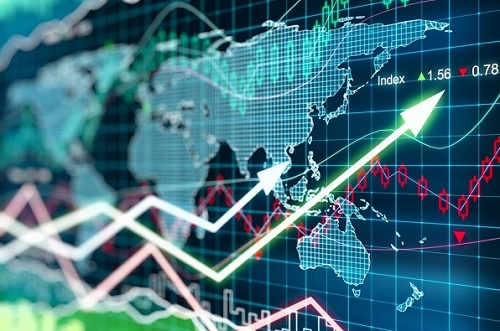Investment Can Drive Economic Recovery
By: Dian Ahadi )*
The government continues to be committed to increasing investment flows in Indonesia. With a lot of investment in Indonesia, the economic recovery that was previously affected by the Covid-19 pandemic can run optimally.
One of the efforts that can encourage economic recovery is investment. Investment growth in the first quarter of 2021 was recorded at Rp 219.7 trillion or grew 2.3 percent on an annual basis. The government’s commitment to accelerate structural reforms has been positively received by government agencies, development partners and various international institutions.
Head of the Fiscal Policy Agency, Ministry of Finance, Febrio Kacaribu, said that the economic transformation from a commodity-based economy to one based on higher added value could encourage post-pandemic recovery.
Based on an assessment of Indonesia’s economic resilience and the ongoing recovery process, the World Bank supports funding of US$800 million to reform Indonesia’s investment and trade policies and help accelerate economic recovery and transformation.
This funding will be operated through two pillars. The first pillar aims to accelerate investment by opening up more sectors to private investment, particularly direct investment and encouraging private investment in renewable energy. The second pillar is to support trade policy reforms to increase competitiveness and economic recovery. The aim is to increase access and affordability of staple food commodities and raw materials and to facilitate access to manufacturing inputs.
This program is also one of the manifestations of the Partnership between Indonesia and the World Bank as stated in the Partnership Framework for the Government of Indonesia and the World Bank for 2021-2025. This Partnership Framework identifies strengthening economic competitiveness and resilience as a key pathway to eliminating poverty and increasing prosperity.
Meanwhile, Bank Indonesia believes that investors are optimistic about the prospects for domestic economic recovery and the investment climate in Indonesia. This is indicated by the net direct investment in the first quarter of 2022 of 4.5 billion US dollars. However, uncertainty in global financial markets due to rising geopolitical tensions between Russia and Ukraine and plans to accelerate the normalization of monetary policy in developed countries may still be the determining factor.
The capital and financial account in the first quarter of 2022 was a deficit of US$1.7 billion, lower than the deficit of US$2.2 billion in the fourth quarter of 2021. One of the reasons was the deficit in the capital and financial account, although on the other hand, the current account enjoyed a surplus. . The total capital and financial account deficit of US$1.7 billion in the first quarter of 2022 was higher than the surplus in the current account of US$0.2 billion, so that the balance of payments returned to a deficit like in the fourth quarter of 2021.
Head of the BI Communications Department Erwin Haryono, in the publication of the BOP Report in Jakarta, stated that the BOP in the first quarter of 2022 remained good and was able to support external resilience. Bank Indonesia continues to monitor the dynamics of the global economy that may affect the outlook for the balance of payments and continues to strengthen policies to maintain economic stability, as well as continue policy coordination with the Government and relevant authorities to strengthen external sector resilience.
Meanwhile, foreign exchange reserves until the end of March 2022 were recorded at 139.1 billion US dollars or 7.0 months with financing from imports and government foreign debt and were above international adequacy standards.
On a different occasion, Finance Minister Sri Mulyani Indrawati said that economic growth in 2023 is targeted to reach 5.3 to 5.9 percent. To achieve this target, consumption and investment will be the main pillars.
It is targeted that consumption can grow again above 5 percent, an increase from 2021 of 2 percent. Meanwhile, investment in 2022 is targeted to grow at 6.1 percent. This target is better than last year’s pandemic, where investment fell by 3.8 percent.
Sri said, Performance in the Investment and Trade Sector, transformation in the manufacturing sector, be it the machinery industry, electronics, chemical communication equipment and mineral downstreaming is very important to become a wheel for economic recovery. However, what needs to be continuously improved is the awareness of the green economy, where the economic value derived from carbon and renewable energy technologies will be the source or be relied on as a new source of growth.
Currently, there is still a sizeable investment disparity throughout the world, especially in developing countries. This inequality can be closed by encouraging more sustainable investment, especially in the field of renewable energy. Sustainable investment is important because it can create jobs that have an impact on the local economy.
The public is asked not to be allergic to investment, because it aims positively to improve welfare. With this increase in investment, people’s welfare is expected to continue to increase and Indonesia can avoid the threat of a global recession.
)* The author is a contributor to Pertiwi institute
